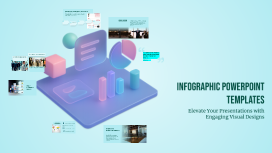PowerPoint Game Templates
Transcript: PowerPoint Game Templates Customization Options Introduction to PowerPoint Game Templates Color Schemes Adding Multimedia Choosing the right color scheme is vital for setting the mood of the game and ensuring readability. Utilize complementary colors to highlight key elements while maintaining a cohesive look throughout the presentation. Integrating multimedia elements such as audio and video can elevate the learning experience. Use clips that provide context, foster understanding, or inject humor, but ensure they are relevant and appropriate for the audience. Font Choices Selecting appropriate fonts affects the template's clarity and aesthetic. Limit the variety of fonts to two or three that are easily readable and align with the game's theme for a professional appearance. Interactive Features Definition of Game Templates Incorporating interactive features like hyperlinks or embedded quizzes encourages participation. Design these elements to fit smoothly into the flow of the game, boosting engagement and retaining interest. Game templates are pre-designed presentation frameworks that incorporate game-like elements, enabling interactive learning experiences. They often include quizzes, challenges, and activities that encourage audience participation. Visual Elements Overview of Template Types Engaging and Interactive Presentation Designs Incorporating visual elements like icons, images, and shapes enhances engagement. Ensure that visuals align with the content and help convey the game's message without overwhelming the audience. Various types of game templates exist, including quiz-based games, trivia, and board games. Each format offers unique interaction levels, catering to different audience preferences and learning styles. Importance of Interactivity Interactivity in presentations fosters greater audience engagement and retention of information. By integrating game elements, presenters can deliver content in a dynamic and enjoyable manner, enhancing learning outcomes. Best Practices for Engagement Clear Instructions Audience Participation Providing straightforward instructions is vital for ensuring participants understand the game mechanics. Clarity reduces confusion, allowing the audience to focus on the content instead of the rules. Encourage questions and interaction to stimulate interest and attentiveness. Implementing interactive elements such as polls or discussions can significantly enhance engagement and retention of information. Balanced Difficulty Levels Timing and Pace Design games that vary in difficulty to cater to a diverse audience. This balance keeps participants engaged, offering both manageable challenges and stimulating competition. Strategically manage the timing of each segment to maintain participants' interest. A well-paced presentation prevents fatigue and keeps the audience engaged from start to finish. Feedback Mechanisms Incorporating real-time feedback channels, such as thumbs up or down, encourages active involvement. This immediate feedback loop enhances engagement and allows for quick adjustments during the presentation. Types of Game Templates Jeopardy Style Quiz Templates Bingo Templates Jeopardy style templates emulate the popular quiz show format, enhancing competition among participants. These templates include categories, point values, and clues, fostering a fun learning environment while challenging knowledge retention. Quiz templates streamline the process of creating engaging quizzes for various topics. They often include multiple-choice questions, scoring systems, and instant feedback features, making it easy to evaluate knowledge and retain audience interest. Bingo templates allow for a fun and engaging way to recap material or reinforce key concepts. Customizable bingo cards can cater to various subjects, promoting interaction and memory recall in a light-hearted setting. Wheel of Fortune Trivia Games Wheel of Fortune templates offer a dynamic and engaging format for review or learning activities. Participants spin the wheel to select categories and answer questions, making the learning process more memorable and interactive. Trivia game templates present a flexible format for gauging knowledge on various topics. They can include timed questions and different difficulty levels to keep participants engaged while enhancing their learning experience.

















